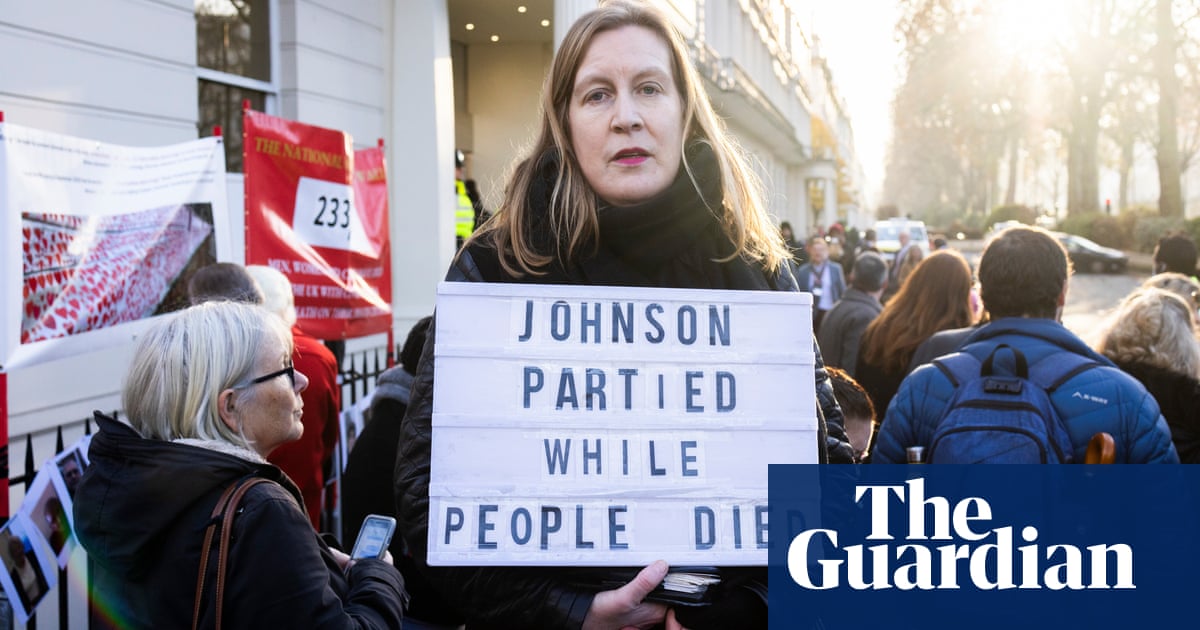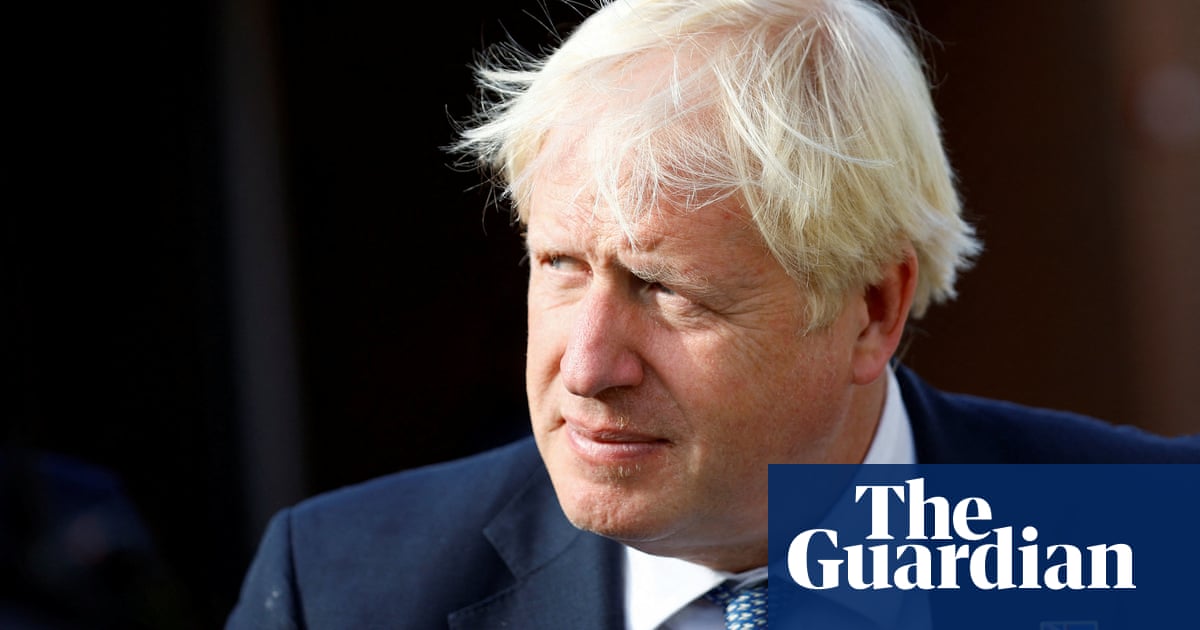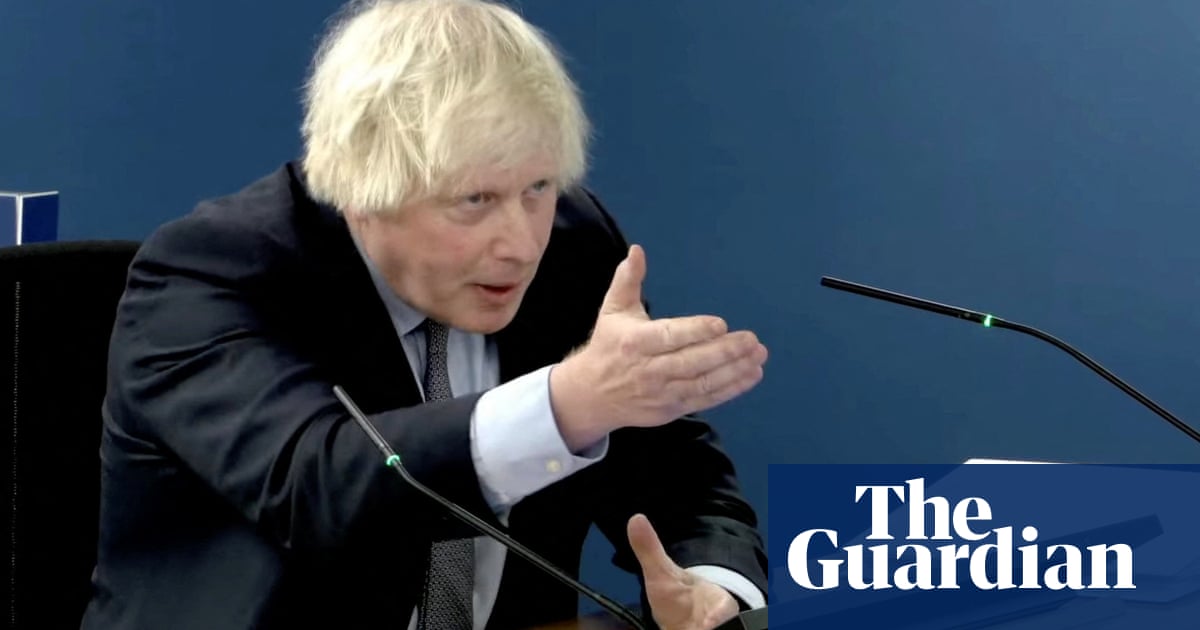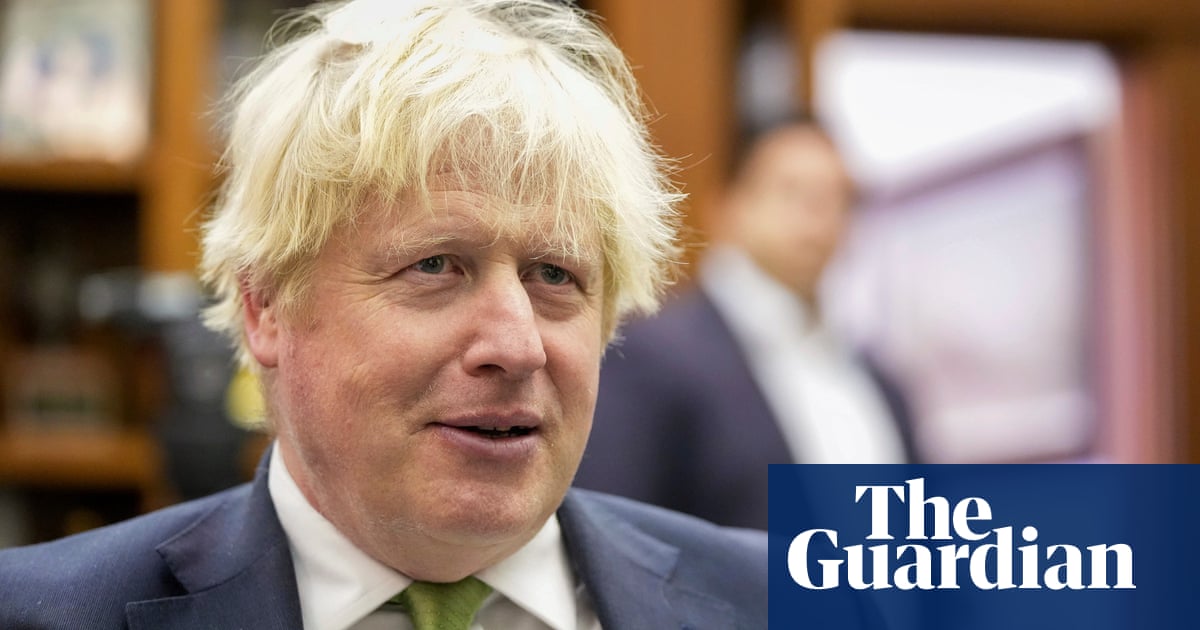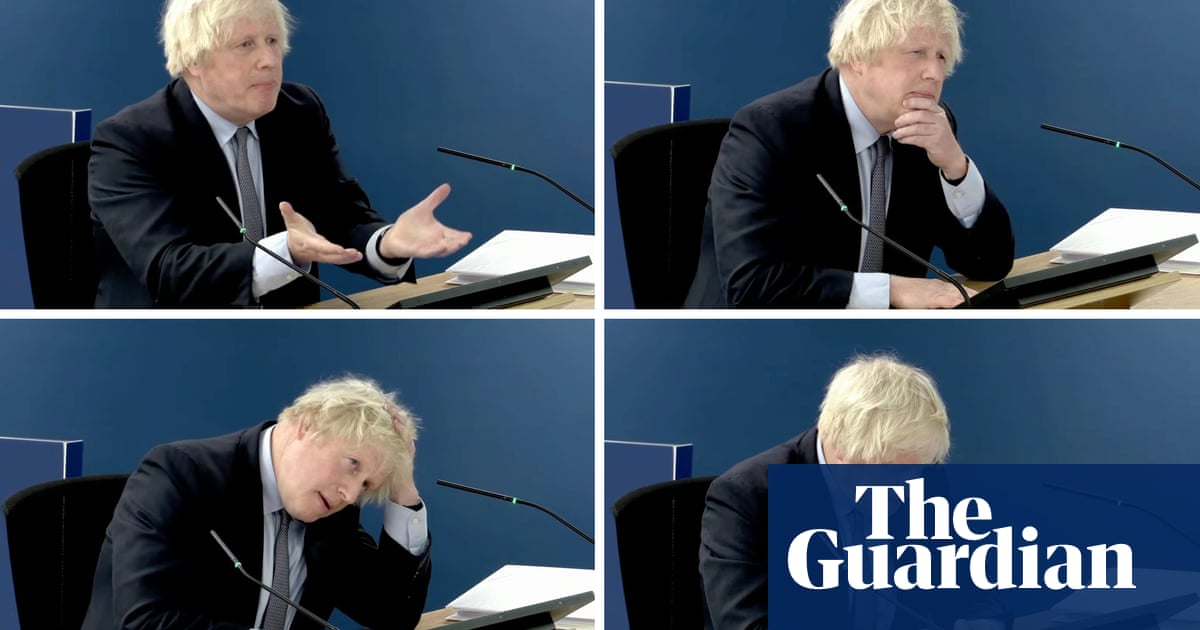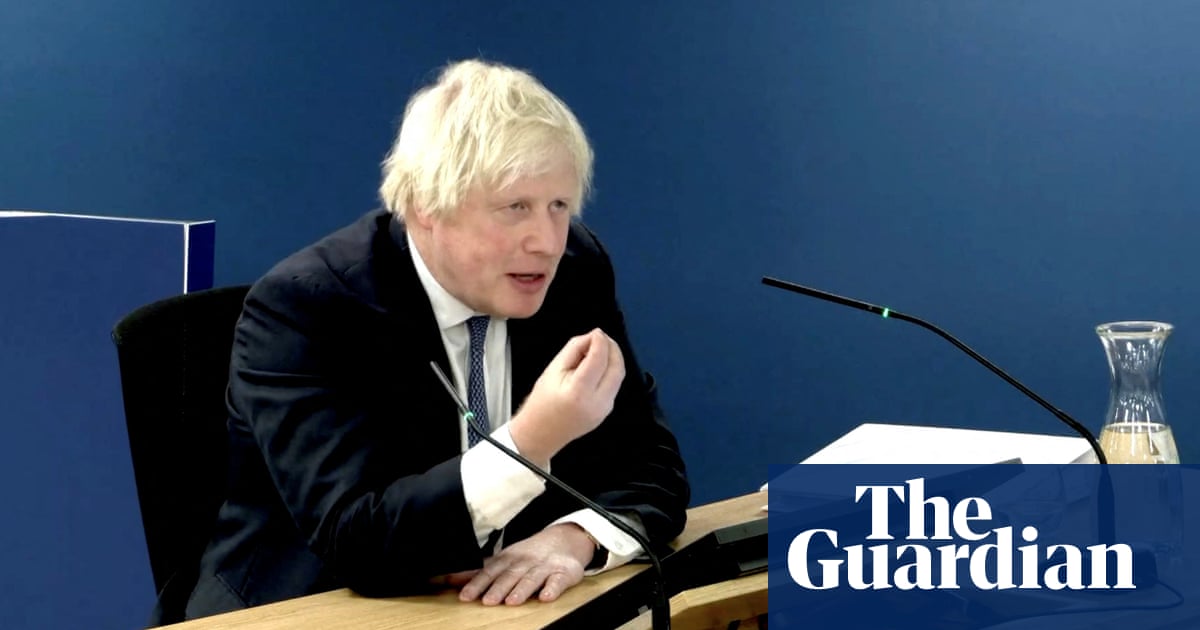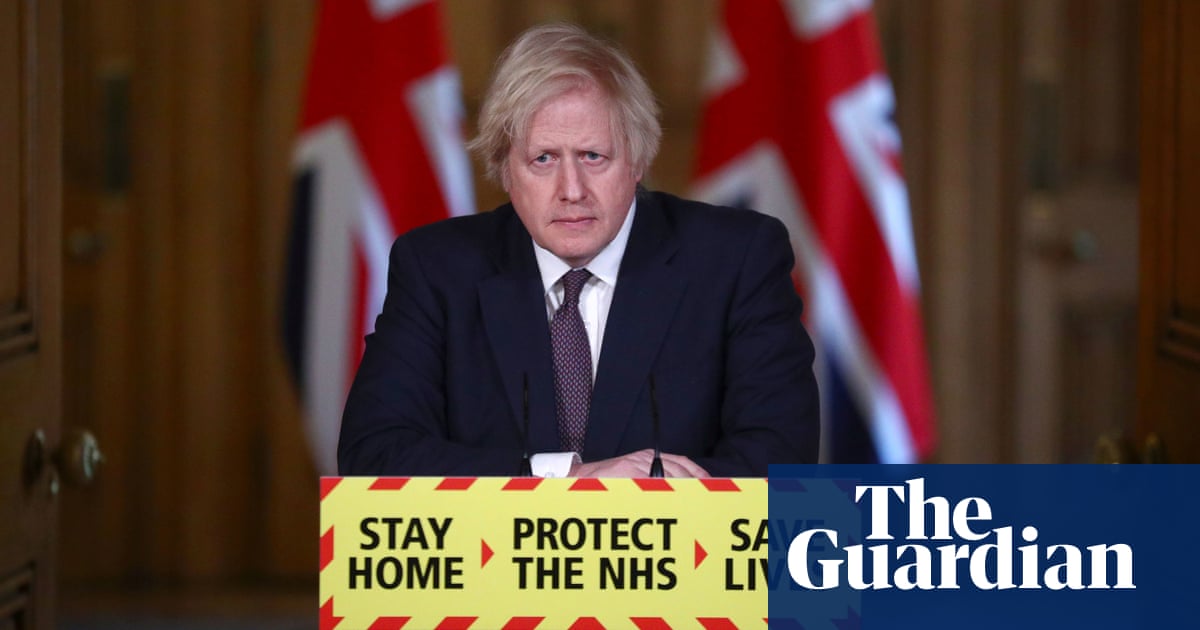
Boris Johnson’s appearance at the Covid inquiry later this week is the most anticipated by any government figure at the hearings.
The two days of questioning, beginning on Wednesday, will be a rare opportunity for the former prime minister to face close scrutiny about the decisions he made during the pandemic, a time when he breached the lockdown rules to which he was urging others to adhere.
Here are some of the key questions that could be asked of Johnson, who is no longer an MP.
Was the UK government too slow to impose the first lockdown, and the second?
This charge has been levelled at Johnson’s government frequently, not least by his estranged chief adviser at the time, Dominic Cummings.
Even before the inquiry, Cummings told a parliamentary committee in April 2021 that Johnson had failed to grasp the gravity of the situation and held out against lockdowns, meaning “tens of thousands of people died who didn’t need to die”.
The claim that the UK had been too late to lock down was repeated at the inquiry by others, including Johnson’s health secretary, Matt Hancock, who said last Thursday that tens of thousands of lives could have been saved if the UK had locked down three weeks earlier.
Brenda Doherty, a spokesperson for Covid-19 Bereaved Families for Justice UK, told the Guardian before Johnson’s appearance that the most important question would be “why he repeated so many of the mistakes made in the first wave, leading to an even higher death toll in the second wave”.
Did he really say ‘let the bodies pile high’ and other similar sentiments?
Johnson has denied reports he had said he would rather “let the bodies pile high” than lock down, but Cummings told MPs in 2021 that he had heard the prime minister make the comments when discussing whether he should have another lockdown in late 2020.
Other comments have been attributed to Johnson, including a claim by the former chief scientific adviser Sir Patrick Vallance that he had suggested “Covid is nature’s way of dealing with old people”.
Doherty said: “There are many reasons why the UK had such a high death toll from Covid-19, but the callous and chaotic attitude of Boris Johnson was clearly a significant one.”
“Johnson will need to be questioned on why he behaved so cavalierly when news of Covid first struck, including ‘laughing at the Italians’ and joking that ‘we were going to be great at Covid’ instead of focusing on measures to contain the virus.”
Did a toxic atmosphere at No 10 get in the way of decision-making and did he defer to Cummings?
A toxic culture of government incompetence, backstabbing and misogyny has already been laid bare at the Covid public inquiry.
Covid-19 Bereaved Families for Justice UK said it wanted Johnson to be asked why he allowed an “egotistical and macho” culture to thrive in No 10, which means issues such as “football and shooting” were prioritised over “domestic violence and pregnant women”.
A key focus is likely to fall on the role of Cummings, who was accused in October of “aggressive, foul-mouthed and misogynistic” abuse after messages showed he tried to sack the senior civil servant Helen MacNamara, saying No 10 was “dodging stilettos from that cunt”.
Among those who gave evidence about the role of Cummings was the former chancellor Sajid Javid, who resigned after clashing with him and who told the inquiry that the aide was “prime minister in all but name”.
Why did he trust Hancock and continue to allow him to have such responsibility?
Hancock has denied being a liar and used his two days before the inquiry to defend his role, but the former health secretary has been the focus of repeated criticism.
Leaving aside the long-term feud which Cummings had engaged in with Hancock, the UK’s top civil servant during the first part of the pandemic, Mark Sedwill, told the inquiry that he urged Johnson to remove Hancock as health secretary.
The then-prime minster was left “under no doubt” Hancock should be replaced, according to Lord Sedwill, who was cabinet secretary until the autumn of 2020.
Do you accept that Partygate undermined public confidence in lockdown rules?
A similar question was put to Hancock last week in relation to his own breach of social distancing rules, illustrated by the emergence of footage of him embracing his aide Gina Coladangelo.
But while the former health secretary took it on the chin and acknowledged the consequences of his rule breaking, a defiant stance over his own rule breaking has been maintained by Johnson, who insisted that the Commons Privileges Committee proceedings into Partygate was used to drive him out of parliament.
As recently as last week, evidence from the diaries of Vallance claimed that that Johnson had also pushed as prime minister to “punish people who aren’t doing the right thing” and for “massive fines” when it came to lockdown rules.




